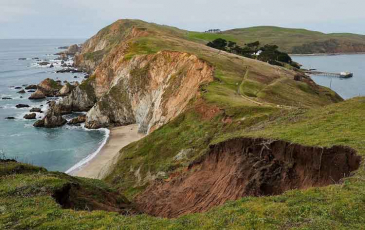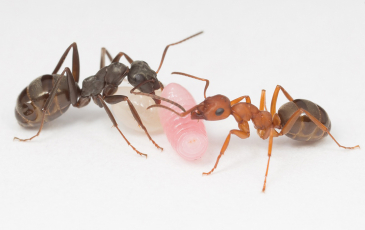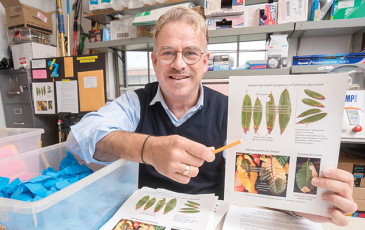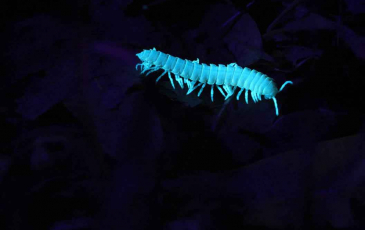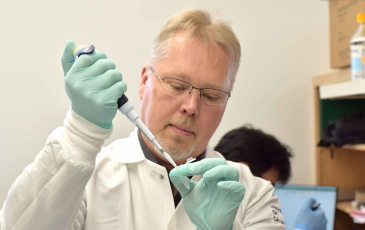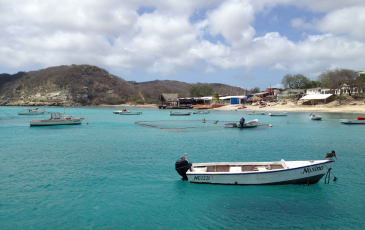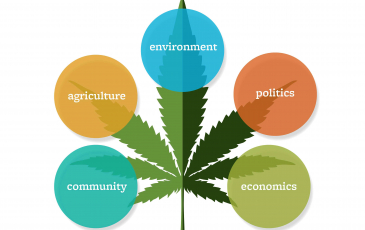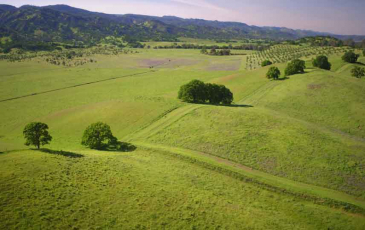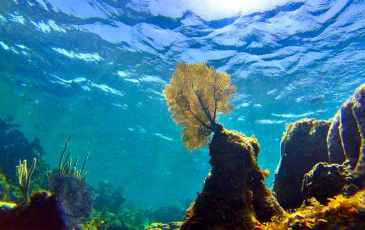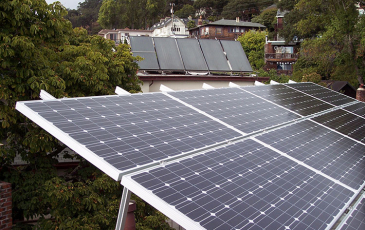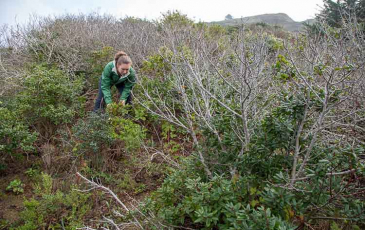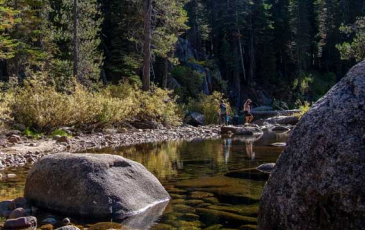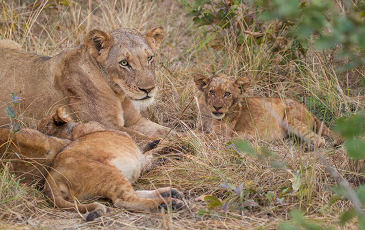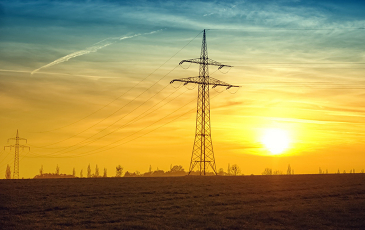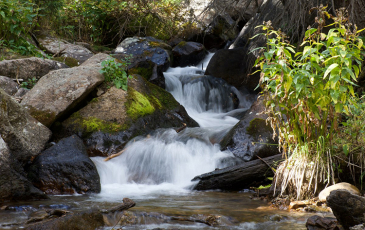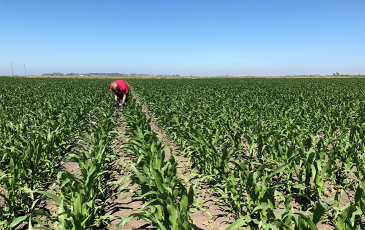Berkeley’s new field station facilitates access to thousands in West Marin for those conducting ecological or other research.
Investment in renewable energy could save tropical rivers
Berkeley energy and river experts argue that investing in renewable technologies could be safer and cheaper than building large dams.
Social Insects
Neil Tsutsui's lab invites the public to join the scientific process through citizen science and outreach projects.
Leading the citizen science contagion
Coopertive Extension Specialist Matteo Garbelotto is on a mission to enlist citizen scientists to stomp out sudden oak death in California.
This millipede and beetle have a toxic relationship
Research from alumnus Brandt Weary and professor Kipling Will has been featured in KQED’s Deep Look video series.
Insulin insights
An unexpected connection between insulin receptor and gene expression opens new doors.
For America’s cities, housing policy is climate policy
Professor Dan Kammen and California state Senator Scott Wiener have co-authored a New York Times op-ed.
Assessing coral bleaching vulnerability in the Caribbean
A new study finds that in the Caribbean, independent island nations are less vulnerable to coral bleaching than island territories.
New Cannabis Research Center to explore environmental, social impacts of legalization
The new Center will explore how cannabis production impacts the environment and society, and how these impacts will evolve under new regulations.
$4.7M to study storing greenhouse gases in soil
An ambitious new multicampus consortium is seeking ways to capture billions of tons of carbon dioxide and bring net carbon emissions in California to zero by 2045.
Näär receives $9.2 million Novo Nordisk Foundation grant
Näär will co-lead a team developing new therapies for the treatment of nonalcoholic steatohepatitis, a liver disease impacting millions globally.
Oceans are warming even faster than previously thought
Heat trapped by greenhouse gases is raising ocean temperatures faster than previously thought, concludes an analysis of four recent ocean-heating observations.
Who benefits from the solar energy revolution?
Remote sensing data and census tract information reveal significant racial disparities in the adoption of rooftop solar photovoltaics.
Is habitat restoration actually killing plants in the California wildlands?
New research highlights for the first time the widespread and deadly threat of the soil- and waterborne pathogen Phytophthora restoration sites.
Fire and water: restoring natural fire regimes to California's mountains
Researchers from the College of Natural Resources and the College of Engineering are helping shape wildfire management strategies.
Lion conservation efforts severely underfunded, study shows
A recent study on lions and their habitats in Africa indicates that in order to save them, we need to invest resources in them now, before it is too late.
Independent solar power could offer reliable electricity to sub-saharan Africa
The “cost of reliability” for decentralized power systems could be extremely low in the future.
Clean Water Act dramatically cut pollution in U.S. waterways
“Water pollution has declined dramatically, and the Clean Water Act contributed substantially to these declines,” said Joseph Shapiro, “So we were shocked to find that the measured benefit numbers were so low compared to the costs.”
Improving soil quality can slow global warming
Low-tech ways of improving soil quality on farms and rangelands worldwide could pull significant amounts of carbon out of the atmosphere and slow the pace of climate change, according to a new study.
UC Berkeley leads new assessment of Bay Area climate impacts
A new assessment of California's challenges in combating climate change has been released, with more than half of the report's authors hailing from UC Berkeley.


